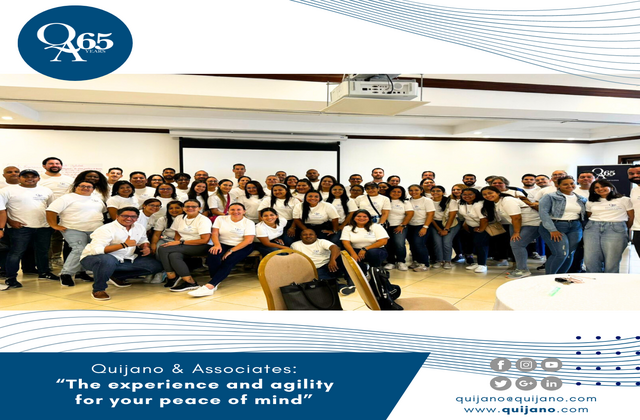Law on Conflict of Interest

On February 18, 2023, Law No. 316 of August 18, 2022, came into force, which regulates situations of conflict of interest in the civil service, this new Law establishes the measures to prevent and regulate situations of conflict of interest in the exercise of the civil service.
With the enactment of this Law, the legislator seeks to strengthen confidence in public institutions and provide regulatory elements in anti-corruption matters, thus raising the levels of transparency in our institutional gear.
The focal point of this regulation is the conflict of interest, which is defined as “the interest that a natural person or legal entity maintains to execute actions tending to the development of personal, private or particular matters in the labor, business or commercial sphere, which result in benefits; Therefore, there is a conflict of interest when an actual or potential situation of the person exercising the civil service may interfere or be contrary or adverse to public interests, or when his private interests, or those of his relatives or donors may influence decisions related to his post, which would manifest itself in a lack of impartiality in the exercise of his powers.”
Although it is true, by means of Law 59 of December 29, 1999, which regulates Article 299 of the Political Constitution, the persons who perform a civil service listed in the aforementioned Law, must render a Sworn Statement of Patrimonial Status, however, the new law not only extends to more persons who hold a public office, calling them “reporting parties” the obligation to render a sworn statement, nor is it only limited in indicating the Patrimonial Status of the declarant, but must disclose the commercial and/or professional activities carried out by the declarant, if he/she maintains any type of commercial relationship with the State (supplier), if he/she maintains commercial relationships with natural persons or legal entities that provide services and/or are holders of state concessions and must declare the detail of the shares and/or rights he/she has in corporations, foundations, trusts constituted both in Panama and abroad.
That, with this Law, natural persons, or members of the board of directors, officers, shareholders, final beneficiaries, and attorneys of legal entities to whom public bids are awarded for goods or services with the State are also considered as “reporting parties” to file a sworn statement of particular interests.
In Articles 6, 7, 8 of Law 316, 2022 lists a series of rules of conduct that must be followed by the regulated entities in the exercise of their civil services, which goes hand in hand with the provisions of Law No. 9 of 1994 and the Code of Ethics of Public Servants.
Regarding the presentation of the sworn statements of interests, the reporting parties shall have a term of thirty (30) days as from the date of taking office, to present before a Notary Public a sworn statement of interests, which must be renewed annually within the first ten (10) days of each year and likewise at the time of termination of their functions they shall have ten (10) days to present their sworn statement of interests.
The National Authority for Transparency and Access to Information shall be the management, surveillance and control entity for all matters related to the sworn statements of interests, which shall have the following responsibilities and/or powers: (i) to require the reporting parties that have not complied with the presentation of the sworn statement of interests to comply with their obligation; (ii) to request information from the General Directorate of Revenue and the Social Security Fund to verify the data provided by the declarant; (iv) to keep an internal record on the due presentation of the sworn statement of interests by the reporting parties; (v) shall have the power to investigate the compliance of the sworn statement of interests by the reporting parties; (v) shall have the investigative power, as well as establish the cases in which a fine should be imposed or recommend to the appointing authority the removal of the public servant from office according to the seriousness of the offense; (vi) to keep an electronic registry of activities, which will be composed of the information obtained from the sworn declarations of interests; (vii) and to publish annually a general report on the compliance of the sworn declaration of interests by the reporting parties, as well as on the infractions.
This law includes a sanctioning regime for infractions committed by the reporting parties, establishing as infractions: (i) defective filing; (ii) failure to file the sworn statement; (iii) and for filing false information. A pecuniary sanction has been established for each infraction; however, the presentation of false information may result in the dismissal of the public servant, being the most serious measure. Likewise, the administrative process is established in the event that it is proven, prior to an investigation, that the reporting party incurred in a conflict of interest.
It is important to mention that this law has not been regulated, but last January 18, 2023, by means of Executive Decree No. 17, the single form of Sworn Statement of Particular Interests was adopted, which will expedite the management of the reporting parties at the time of rendering their statement before a Notary Public.




